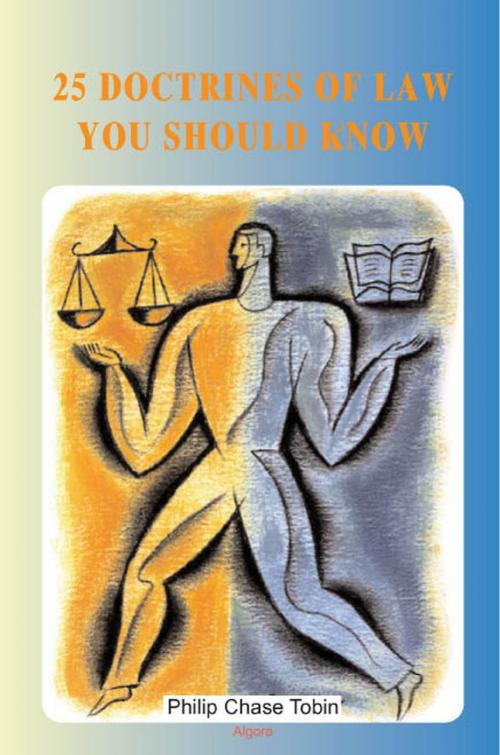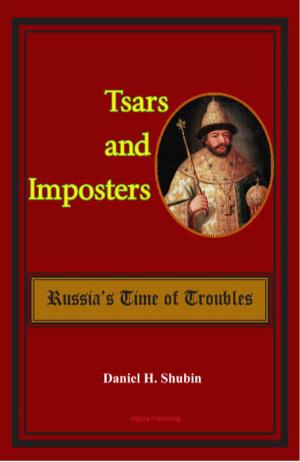25 Doctrines of Law You Should Know
Nonfiction, Reference & Language, Law, Dictionaries & Terminology| Author: | Philip Chase Tobin | ISBN: | 9780875865386 |
| Publisher: | Algora Publishing | Publication: | December 15, 2009 |
| Imprint: | Algora Publishing | Language: | English |
| Author: | Philip Chase Tobin |
| ISBN: | 9780875865386 |
| Publisher: | Algora Publishing |
| Publication: | December 15, 2009 |
| Imprint: | Algora Publishing |
| Language: | English |
"I'll sue you!
In America's litigious society, everyone needs to know a few basics to avoid being snowed, cowed and generally abused. Even those who can afford to hire lawyers need to know what they are up to. This introduction to legal doctrines is a good first step if you want to file suit or help prepare your own legal defenes.
When a conflict arises, what are the main doctrines of law that give one side an advantage? What do they mean, and how do they apply? When you can see through the legal jargon, the intimidation factor loses its power and you can concentrate on real issues  and use these tools to take care of yourself.
Some of America's doctrines go back to the 17th-century English Bench and have had a lasting impact on our legal system. Other doctrines are of more recent vintage but have had an equally profound influence. The author has researched 1000 legal cases and identified 326 different doctrines of law; of those, he has selected 25 doctrines that average Americans are most likely to encounter in everyday activities. In these pages he reviews actual cases to show how the doctrines apply in real-life scenarios and relates what happened in court.
These non-jargon explanations of legal scenarios provide handy background reading for fans of court-room dramas and, since any one of us may end up in court these days, important general education for every adult in the United States.
The 25 doctrines discussed are:
1. Res Ipsa Loquitur
2. Promissory Estoppel
3. Respondeat Superior
4. Doctrine of Sudden Danger
5. Rescue Doctrine
6. Doctrine of Comparative Negligence
7. Doctrine of Unjust Enrichment
8. Doctrine of Unclean Hands
9. Doctrine of Unconscionability
10. Fruit of the Poisonous Tree Doctrine
11. Attractive Nuisance Doctrine
12. Doctrine of Mitigated Damages
13. Quantum Meruit Doctrine
14. Doctrine of Sovereign Immunity
15. Doctrine of Absolute Immunity
16. Doctrine of Qualified Immunity
17. Last Clear Chance Doctrine
18. Open and Obvious Danger Doctrine
19. Assumption of Risk Doctrine
20. Public Duty Doctrine
21. Statute of Limitations
22. Equitable Estoppel
23. Res Judicata
24.Collateral Estoppel
25. Stare Decisis
As an accessible point of introduction for those interested in the US legal system, this book is suitable as a popular reference work for public libraries, auxiliary reading for business-school courses, a starting place for anyone caught in a legal conflict, and handy background reading for fans of court-room drama novels and TV.
"I'll sue you!
In America's litigious society, everyone needs to know a few basics to avoid being snowed, cowed and generally abused. Even those who can afford to hire lawyers need to know what they are up to. This introduction to legal doctrines is a good first step if you want to file suit or help prepare your own legal defenes.
When a conflict arises, what are the main doctrines of law that give one side an advantage? What do they mean, and how do they apply? When you can see through the legal jargon, the intimidation factor loses its power and you can concentrate on real issues  and use these tools to take care of yourself.
Some of America's doctrines go back to the 17th-century English Bench and have had a lasting impact on our legal system. Other doctrines are of more recent vintage but have had an equally profound influence. The author has researched 1000 legal cases and identified 326 different doctrines of law; of those, he has selected 25 doctrines that average Americans are most likely to encounter in everyday activities. In these pages he reviews actual cases to show how the doctrines apply in real-life scenarios and relates what happened in court.
These non-jargon explanations of legal scenarios provide handy background reading for fans of court-room dramas and, since any one of us may end up in court these days, important general education for every adult in the United States.
The 25 doctrines discussed are:
1. Res Ipsa Loquitur
2. Promissory Estoppel
3. Respondeat Superior
4. Doctrine of Sudden Danger
5. Rescue Doctrine
6. Doctrine of Comparative Negligence
7. Doctrine of Unjust Enrichment
8. Doctrine of Unclean Hands
9. Doctrine of Unconscionability
10. Fruit of the Poisonous Tree Doctrine
11. Attractive Nuisance Doctrine
12. Doctrine of Mitigated Damages
13. Quantum Meruit Doctrine
14. Doctrine of Sovereign Immunity
15. Doctrine of Absolute Immunity
16. Doctrine of Qualified Immunity
17. Last Clear Chance Doctrine
18. Open and Obvious Danger Doctrine
19. Assumption of Risk Doctrine
20. Public Duty Doctrine
21. Statute of Limitations
22. Equitable Estoppel
23. Res Judicata
24.Collateral Estoppel
25. Stare Decisis
As an accessible point of introduction for those interested in the US legal system, this book is suitable as a popular reference work for public libraries, auxiliary reading for business-school courses, a starting place for anyone caught in a legal conflict, and handy background reading for fans of court-room drama novels and TV.















